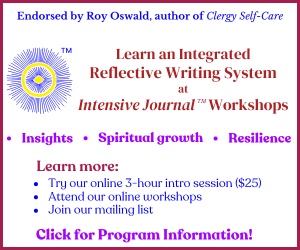SU1-01 Addressing Interdisciplinary Care Team Burnout through Engaging Facilitated Conversations
Presented by C. John Hildebrand
Overview
Dr. Vivek Murthy, U.S. Surgeon General, has identified reducing burnout among health care workers as a top priority of his tenure. How can spiritual care professionals support our interdisciplinary care team members who are experiencing significant burnout and overwhelm? The Allina Health (Minnesota) Spiritual Care team developed an engaging facilitated conversation around the realities and effects of burnout for health care teams. It offers practical suggestions on how to recognize and recover from the effects of overwhelm and burnout. Over fifty Allina care teams from the frontline to the boardroom have participated in these dynamic conversations, led by chaplains, since April 2023, and more are being requested every week. We are exploring research options for this model and, due to demand, have developed a second offering that builds upon the first.
Handout Included: NO
SU1-02 Advocacy in the Spiritual Care of Muslim Patients
Presented by Seher Siddiqee, Faduma Warsame, and Jaye Starr
Overview
Building off the 2024 Association of Muslim Chaplains’ poster presentation, “Themes in Muslim Patient Care,” this interactive workshop will utilize case studies to explore the ways that provider biases impact their ability to provide care to Muslim, families, and staff. Participants will have the opportunity to work in small groups to identify their personal and institutional barriers and learn best practices to advocate for the needs of Muslim in their institutions.
Handout Included: YES
SU1-03 Chaplain Attitudes and Practices Toward Spiritual Assessment: A National Survey
Presented by Paul Galchutt, Cate Beaulieu-Desjardins, Csaba Szilagyi, and George Fitchett
Overview
Spiritual assessment (SA) is one of the chaplain’s most important tasks and the first among the Standards of Practice. SA is foundational for effective spiritual care and interprofessional communication. Existing SA data indicate chaplains have less familiarity with published models, misunderstand SA, and are resistant to use of explicit SA. This workshop’s national survey (n=1,101 chaplains; January 2024) results grant a better understanding of chaplain SA attitudes and practices. This information gives an important starting point for efforts to improve SAs, spiritual care, and the integration of spiritual care with the care being provided alongside interprofessional colleagues.
Handout Included: NO
SU1-04 Chaplain Intervention for Teams Under Cumulative Stress
Presented by Michael Le Buhn
Overview
As a result of this educational opportunity, participants will be able to identify cumulative stress needs and provide a meaningful intervention for teams experiencing cumulative stress. AIID is an intervention designed by Allina Spiritual Care that addresses the impact of this stress on teams. One primary goal of AIID is to facilitate peer-to-peer support. An explanation of the intervention and case studies will be provided.
Handout Included: NO
SU1-05 Chaplains’ Iterative Process and Interventions Addressing Religious and Spiritual Struggle (r/s struggle) (R)
Presented by Salvador Leavitt-Alcántara and Angela Meeks
Overview
The growing body of literature on religious and spiritual (R/S) struggles consistently highlights its association with various health outcomes both in adults and pediatrics populations. As members of interdisciplinary teams, Chaplains or spiritual care providers frequently offer spiritual care to patients and families grappling with R/S struggles. However, there is a paucity of literature demonstrating how chaplains address R/S struggle in their practice. Employing a constructivist Grounded Theory study design, we sought to comprehend the approaches pediatric chaplains utilize in addressing R/S struggles. Our findings reveal that chaplains use an iterative three-phase process and deliver interventions addressing r/s struggle in their clinical practice. This workshop will discuss our findings and evaluate their impact to clinical practice.
Handout Included: NO
SU1-06 Chaplains Role in an Interdisciplinary Healthcare Equity Consult Service
Presented by Kamau Ayubbi and Christina Wright
Overview
Led by chaplains, social workers, and a physician, the Healthcare Equity Consult Service (HECS) is a multidisciplinary consult team at an academic medical center that receives consults from any patient, family members, or care team member who feels that bias may be impacting patient care and then assesses and provides interventions and recommendations to impact equity at the bedside. Spiritual Care has played a prominent and critical role in the development and foundational principles of this service, demonstrating an innovative opportunity for chaplains to work in an interdisciplinary team to impact equity in real time clinical settings.
Handout Included: NO
SU1-07 Collaboration and Compassion: Piloting Spiritual Care in Outpatient Oncology
Presented by Deanna Conrad
Overview
Oncology care continues to be an expanding dimension of health care with growing emotional and spiritual care needs of patients and families and the medical staff caring for them. This workshop will address the interdisciplinary collaboration in creating and implementing a pilot program for providing spiritual care in an outpatient oncology clinic. I will highlight the important role of oncology spiritual care in alleviating suffering, identifying legacy and meaning making around one’s existence, encouraging whole person care of patients and staff, and advocating for the compassionate care of oncology patients.
Handout Included: YES
SU1-08 Overnight Spiritual Care Coverage
Presented by Andrew Greaves
Overview
This presentation describes the role of spiritual care in the overnight hours between 9pm – 7am, and take place at a Level II trauma center. Discuss the difference between on-call and on-sight coverage. As a single-person department during the overnight hours it is a challenge to juggle the needs of the hospital ranging from consults, referrals, ethics concerns, deaths, codes, routine visits, building staff relationships, staff debriefs, and reporting the atmosphere of the hospital to the day shift chaplains to maintain a continuity of care of the hospital at large.
Handout Included: NO
SU1-09 Reimaging Chaplaincy Education : Preliminary Data on a New Integrated Degree Design that Develops Core Competencies and Skills-Sets (R)
Presented by Rev. Dr. Jaclyn Williams and Rev. Dr. Mary Glenn
Overview
In a rapidly evolving world, the presence of chaplains is more crucial than ever, and so is the need for educated and trained chaplains. Methods and frameworks for educating and training chaplains have yet to meet the growing demand. In Fall 2023, Fuller Theological Seminary launched an innovative MA in Chaplaincy degree that integrates core competencies, contextualized learning, mentoring, and holistic well-being. This workshop will share insights gleaned from the successful completion of the first cohort, including perspectives from program students, faculty, and professional chaplains who engaged with the students during their practicums.
Handout Included: YES
SU1-10 Trauma Spiritual Care in US Adult Level I Trauma Centers – Opportunities and Challenges (R)
Presented by Nina Redl
Overview
This workshop will present the results of the first nationwide mixed method mapping research project on trauma spiritual care/chaplaincy in the 242 US adult level I trauma centers (conducted in 2024). The models and approaches to spiritual care/chaplaincy in trauma centers vary greatly across the nation. This study shows the different approaches to trauma care, staffing, coverage, levels of involvement in the initial trauma process, follow up care, bereavement care, staff care and education as well as the varied needs that exist to provide higher level chaplaincy trauma care. We will discuss the perceived opportunities, strengths and growing edges of the field of trauma chaplaincy as well as engage in conversation about the needs of the audience in their work with trauma patients.
Handout Included: NO
SU1-11 Using the Enneagram in Spiritual Care
Presented by Nicholas Collura
Overview
Those who are already familiar with the Enneagram model of the human personality may wonder whether and how it can be used in patient care. This workshop will begin with some ethical considerations that set parameters on the appropriateness of relying on it too heavily without a patient’s freely self-identifying with one of the model’s “types.” It will then consider some of the system’s general insights into the relationship between personality (ego) and essence and into the relationship between personality style and what the Enneagram calls “Holy Ideas.” These concepts can be used to inform one’s active listening and “image of God” work, as well as one’s attention to one’s own use of self, in the work of spiritual care.
Handout Included: NO
ONLINE VIDEO/AUDIO RECORDING RETURN POLICY
Effective as of: July 1, 2023
This applies to Annual Conference Recordings, Professional Education Webinar Recordings, Chaplain Symposium Recordings, and Webinar Journal Club Recordings.

